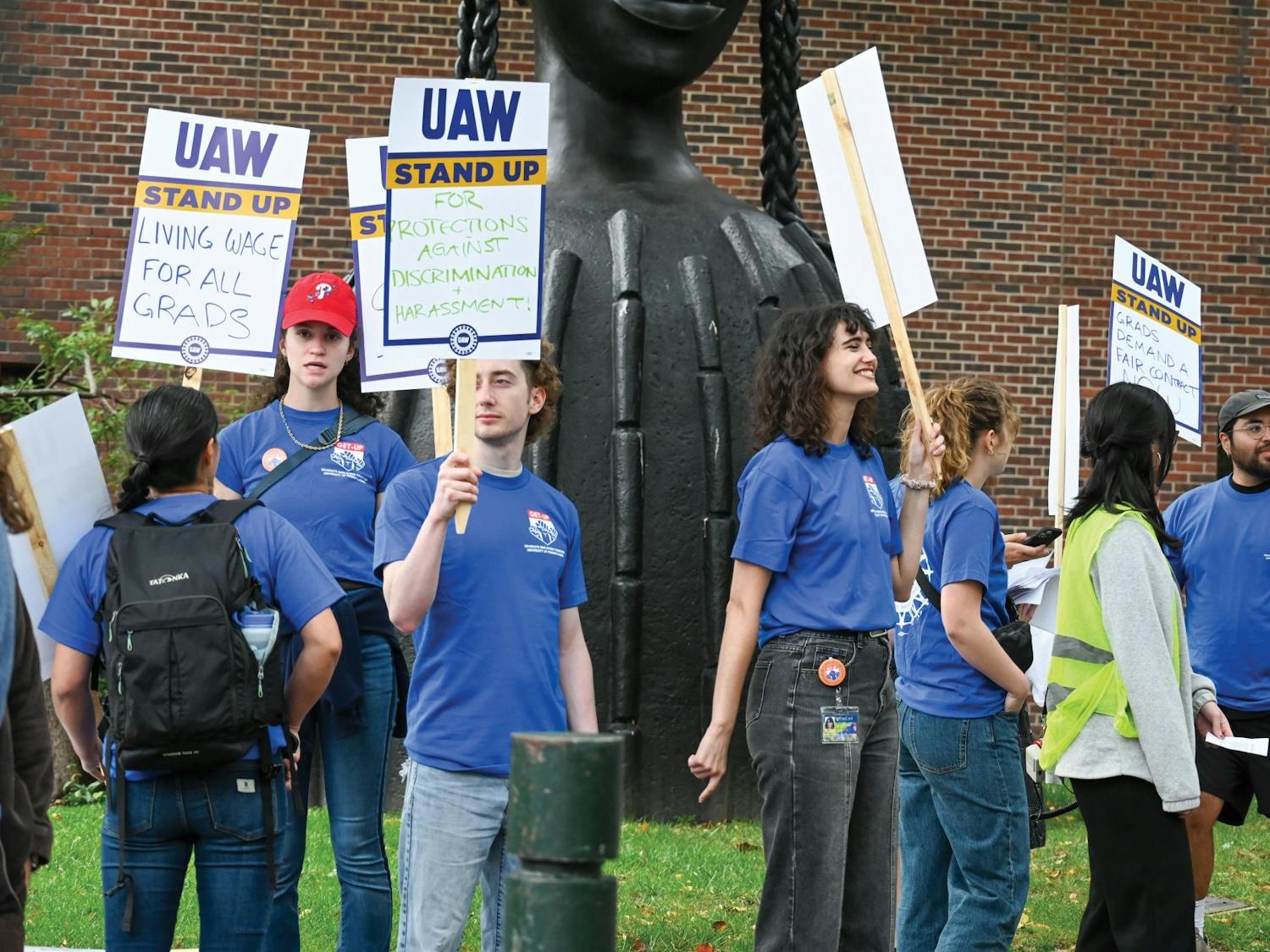The Student Activities Council recently allocated funds left over from previous years to go towards non-essential travel.
SAC -- which recognizes, supervises and funds undergraduate activities at Penn -- has given nearly $12,000 to groups wanting to attend educational events, which are not necessarily mandatory for their organization.
"We normally have a number of appeals after announcing our spring budget recommendations," SAC Chairman and Wharton senior Simon Bland said. "This year, however, we had very few appeals, so we were able to use some of our leftover money for a different purpose."
Bland explained that this procedure is not typical, as the money is normally used for the groups' budget appeals. He also believes that this might not be a permanent policy, as different situations arise each year.
SAC Vice Chairwoman and College senior Naomi Berkowitz sees this allocation as one of the group's greatest accomplishments.
Ten groups benefited from the $12,000, including Alternate Spring Break, UTV-13, Mock Trial and Check One.
Check One -- a cultural organization for people of mixed and multiracial ethnicities -- was able to add $526 to its budget in order to send its members to the 2004 National Conference on the Mixed Race Experience in California.
Some representatives of campus groups, however, believe that SAC could have found a better way to use these resources.
"It's bothersome that instead of re-evaluating its policies, [the SAC Executive Committee] chose to allocate the money so that a few groups got the complete benefit of this one-time act," said College senior Diana Dlugash, the treasurer of the experimental theater group Intuitions.
Dlugash added that theater groups face severe limitations with current SAC policies, such as the photocopying policy, which limits groups to $200 per year.
"As a theater group, we need to make photocopies to advertise our auditions, tech interviews, the show itself and also print programs," she said. "It's frustrating because we feel -- like with any budget -- that there's never enough money."
In order to make ends meet, Intuitions also counts on ticket sales and ad placements in its programs to cover the costs.
SAC funding has been an ongoing issue among student groups. While many groups say that there is not enough funding, SAC has in fact seen a steady increase in its annual budget. In the 1999-2000 school year, it received approximately $446,000 from the UA, and last year, SAC was given over $600,000.
In the spring, the groups handed in budgets that requested a total of over $800,000 in grants and loans, but the Executive Committee eventually made cuts -- 60 percent was allocated directly to the groups, 20 percent for SAC administration and 20 percent as part of the contingency fund.
Of the nearly $370,000 in grants, Sports Club Council -- an additional umbrella organization that oversees various club sports on campus -- obtained the largest share, with $88,150, or roughly 24 percent of the funds.
Other groups to receive a significant amount of grant money include the Department of Music Performance Ensemble at $21,560, the Debate Council at $20,260, UTV13 at $15,893, Alternate Spring Break at $11,260 and the Penn Players at $10,240.
However, some feel that money allocation could be improved with better liaison work.
According to former SAC Executive Committee member and current Wharton senior Michael Hoffman, a problem with the committee was a lack of preparation before meetings.
"It was like going to recitation having not done the readings," he said, noting that many SAC liaisons were not knowledgeable about their groups.
"Had they been more informed about their groups, SAC could have helped bring similar groups together, so that they could develop greater relationships with each other," Hoffman said, explaining how co-sponsored events can create a tremendous amount of synergy by incurring fewer costs and serving a greater amount of attendees.
Former Student Nurses at Penn Treasurer and Nursing and Wharton senior Aparna Chandrasekhar agreed that the SAC representatives need to be more responsible.
"I think Penn is lucky to have a network, like SAC, to allocate money to the University's many... groups," she said, "but the student representatives who attend the monthly... meetings need to understand the importance and power of their role."
Despite the criticisms, however, surveys show that most representatives are pleased with SAC's performance.
The results of a fall 2002 survey conducted by SAC, which were released in January of 2003, showed that over 60 percent of the 70 respondents found SAC to be very approachable, effective and responsive.
A similar percentage of respondents also rated SAC either "good" or "excellent" when asked about its fairness, diplomacy and effectiveness.
"I feel that SAC meetings are generally pretty good," ASB treasurer and College senior Yuo-Chen Kuo said. "Because [the Executive Committee] is made up of students, it's easier to bring up our concerns than it would be with administrators."
And organizers said that they are doing their best to support Penn's student groups.
"We recognize and fund a variety of groups that are all unique in their own way," Bland said. "SAC adds value and diversity to the campus."
Berkowitz agreed, adding that "SAC isn't about denying groups of money. It's about facilitating activities in a manner that best serves the entire Penn community."








